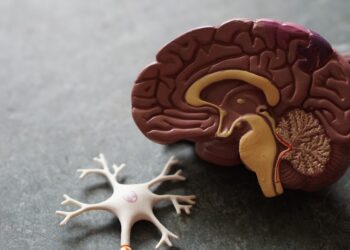 Aussie supermodel Miranda Kerr is a huge fan of naturopath James L. D’Adamo’s Blood Type Diet. To find out more about it, we asked him to reveal some of the rules for eating for your blood type.
Aussie supermodel Miranda Kerr is a huge fan of naturopath James L. D’Adamo’s Blood Type Diet. To find out more about it, we asked him to reveal some of the rules for eating for your blood type.
In D’Adamo’s new book, Just An Ounce Of Prevention Is Worth A Pound Of Cure, he gives examples of how his patients have been able to improve their health by eating the right foods suited to their blood type.
Here, D’Adamo reveals what your blood type says about you:
If you’re a Type O…
You need animal protein. If we return to an earlier period of humankind’s development, the first blood type to appear was an O. Early man was a hunter, dependent on physical prowess to track and kill his food. That man required high-octane fuel, and that fuel came from his regular consumption of the most energy-packed food substance: animal protein.
Although few of us today hunt for our next meal, and our fight-or-flight mechanism is triggered far less than in other periods of human history, Type O’s still bear the imprint of their predecessors and require daily helpings of animal protein to meet their physical needs.
An O who tries to lead a vegetarian lifestyle will always be hungry and constantly snacking—usually on a carbohydrate—to get a quick boost. O’s who follow this regimen will ultimately develop low blood sugar.
For optimal health, you should include several servings of turkey, lamb, fish, and occasionally organic beef in their daily diet. However, you should limit or entirely eliminate dairy and wheat products. Milk, cheese, and eggs produce an excessive amount of mucus in the O, which often leads to chronic respiratory and circulatory conditions. Type O’s who eliminate or greatly reduce dairy products from their diet will prevent or dramatically improve their asthma or chronic sinus conditions.
If you’re a Type A…
You are the best candidate for a vegetarian based diet. Whereas the O’s were nomadic hunters and cave dwellers, the A’s developed during a time when people created settlements and turned to farming. Lifestyle changes led to nutritional changes. You can appreciate this better by thinking about your daily life. If you work all day in an office, are a suburbanite who drives more than you walk, or if you spend too much time in front of the television or on the Internet, you don’t have the same need for large protein-based meals as someone who has a more physically demanding occupation, such as a farmer, a forest ranger, or a plumber.
A’s, in general, are less active than O’s, and their bodies don’t have the same need for animal protein. Because Type A’s typically suffer from mucous-related conditions and frequently experience colds, sinus infections, allergies, and other respiratory problems, they must avoid dairy products. Any dairy—a drop of milk or a slice of cheese—in an A’s body is absolute poison.
The most beneficial foods for you will always be those that are more alkaline-forming, including leafy green vegetables, tofu, soy milk, and an assortment of grains like rice, quinoa, spelt, amaranth, and rice- or soy-based pastas.
If you’re a Type B…
You require the best of both kingdoms: animal protein and a vegetarian diet.
Type B individuals generally have a strong constitution and good autoimmune system. They can tolerate moderate amounts of dairy products, but if they eat or were fed excessive amounts of milk, cheese, and butter as children, they, like the A, will frequently suffer with catarrh (excessive mucus generally caused by an inflammation of the mucous membranes, particularly in the nose and throat). They may also be prone to respiratory diseases, food allergies, sinus problems, and asthma.
Like the A, the B doesn’t tolerate whole-wheat products well. Wheat substitutes like spelt, quinoa, and amaranth, and pastas made from rice would be preferable. Like the O, the B requires animal protein and can choose from many foods including turkey, lamb, salmon, and halibut. A Type B in a balanced state of health can also choose meals from a variety of vegetables and grains—the key is moderation.
If you’re a Type AB…
You possess the tolerances of both A and B; and when in a balanced state of health, your immune systems tend to have an enhanced capacity to produce antibodies against infections. As a result, they’re less prone to the allergic conditions and the autoimmune weaknesses typically seen in an A.
The best preventive diet for you is a mixture of the A and B diets. People who are Type AB do well on a diet geared toward vegetarianism, with the modest additions of some animal protein. Like Type A’s, they don’t tolerate dairy foods and are similarly subject to mucus production and respiratory conditions. Dairy products—cheese, milk, butter, and so forth—should be greatly reduced or entirely eliminated. Like the B, the AB can’t tolerate whole wheat and should substitute it with products made from spelt, amaranth, quinoa, and rice flour.
 Published by Hay House, Just An Ounce Of Prevention Is Worth A Pound Of Cure, (RRP $34.95), is available now at all leading retailers. Visit www.hayhouse.com.au for more information.
Published by Hay House, Just An Ounce Of Prevention Is Worth A Pound Of Cure, (RRP $34.95), is available now at all leading retailers. Visit www.hayhouse.com.au for more information.



















